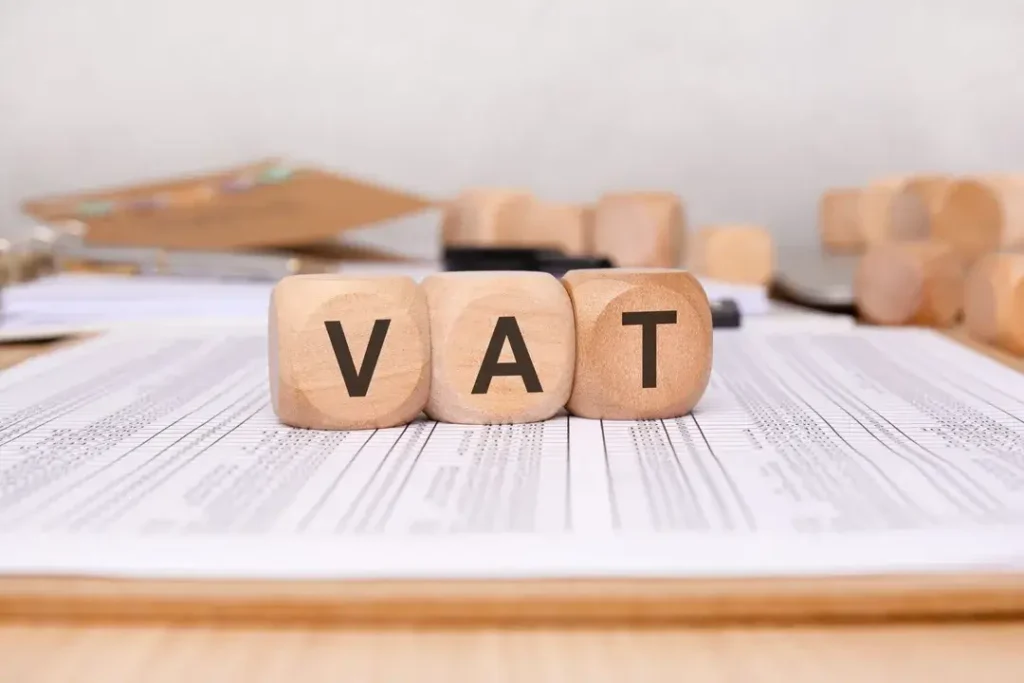VAT Compliance in a Changing Business World
For many small and medium-sized businesses, VAT compliance feels like a constant challenge. With ZATCA introducing stricter rules, e-invoicing systems (FATOORA), and more frequent audits, the pressure to stay compliant in 2025 is higher than ever.
But here’s the good news compliance doesn’t have to be overwhelming. With a clear VAT compliance checklist, businesses can reduce risks, avoid penalties, and operate with confidence. Think of it as financial hygiene: once you make it part of your routine, it becomes much easier to manage.
VAT Compliance Checklist 2025
1. Confirm VAT Registration
One of the most important steps in staying compliant is ensuring that your business is properly registered with ZATCA. VAT registration requirements are linked to annual revenue thresholds, and businesses need to monitor these closely. If your turnover changes significantly, your registration status may need to be updated. Staying informed about regulatory announcements helps prevent errors and keeps you on the right side of compliance.
Failing to confirm or update registration can result in penalties and invalidate VAT filings. By conducting regular checks and consulting with tax professionals, you can avoid unnecessary risks and ensure your VAT account is always up to date.
2. Issue VAT-Compliant Invoices
Invoices form the foundation of VAT compliance, and ZATCA sets clear standards for how they should be issued. Every invoice must include the correct format, sequential numbering, VAT registration number, and a clear breakdown of the tax applied. With e-invoicing (FATOORA) now mandatory, businesses must use approved digital systems that generate audit-ready invoices automatically.
When invoices are issued incorrectly, businesses risk losing input VAT claims or triggering audits. Automating the invoicing process reduces these risks significantly, ensuring accuracy and efficiency while providing a transparent record for both regulators and investors.

3. Record Transactions on Time
Timely bookkeeping is essential for accurate VAT reporting. All sales, purchases, imports, and exports should be logged in real time and categorized correctly. Proper categorization ensures that eligible input VAT is claimed and that returns align with actual financial activity.
When transactions are recorded late, discrepancies occur between financial records and VAT returns, raising audit red flags. Maintaining up-to-date books not only supports compliance but also improves cash flow visibility, enabling business owners to make informed decisions about growth and investments.
4. File VAT Returns Before Deadlines
ZATCA requires VAT returns to be filed either monthly or quarterly, depending on the business size. Missing a deadline, even by a few days, can result in significant penalties. To avoid this, companies should prepare returns well ahead of schedule, giving themselves time to double-check accuracy.
Filing on time is about more than avoiding penalties it also demonstrates professionalism and financial discipline. Many SMEs find it helpful to set automated reminders or engage consultants who can manage the filing process, ensuring submissions are both timely and accurate.
5. Reconcile VAT With Financial Reports
Reconciliation is one of the most effective tools for ensuring accuracy in VAT compliance. Businesses should compare VAT returns against financial reports such as profit and loss statements and balance sheets. Any inconsistencies should be resolved before submissions are made, as mismatches are a major reason for audits.
Regular reconciliation also improves internal financial management. It creates a clear audit trail, builds transparency, and strengthens investor confidence by showing that the business has control over its financial reporting.
6. Stay Audit-Ready Year-Round
Being audit-ready isn’t something you prepare for only when notified it’s an ongoing practice. Businesses should maintain digital and physical copies of invoices, receipts, and contracts for at least five years. Having organized records ensures you can respond quickly to audit requests without delays.
Proactive businesses also conduct internal VAT audits, which identify potential risks before regulators do. This approach reduces stress, minimizes penalties, and demonstrates transparency, making the company appear more credible and trustworthy to regulators, banks, and investors.
7. Plan VAT and Corporate Tax Together
VAT should never be managed in isolation. With corporate tax now introduced, businesses must integrate both into their financial planning. Setting aside reserves each month ensures that funds are available for both VAT and corporate tax payments, preventing last-minute cash flow problems.
Aligning VAT with corporate tax filings creates consistency across reports, which regulators value highly. It also simplifies forecasting, reduces compliance risks, and strengthens investor trust by demonstrating a disciplined, forward-looking financial strategy.
Common Pitfalls That Lead to Problems
Many businesses run into compliance issues not because of fraud but because of small oversights. The most common include:
Submitting invoices late or in the wrong format.
Claiming VAT on ineligible expenses.
Failing to reconcile VAT returns with accounting reports.
Relying too heavily on manual systems prone to error.
These issues are avoidable with proper systems, automation, and professional oversight.
Conclusion: Turn Compliance Into an Advantage
VAT compliance in 2025 is more than ticking a regulatory box—it’s about building credibility, maintaining transparency, and creating a foundation for growth. By following a clear VAT compliance checklist, businesses can stay audit-ready, reduce risks, and show stakeholders they are reliable and well-managed.
At AYBE, we specialize in helping businesses align with ZATCA requirements through expert bookkeeping, VAT filing, and audit preparation services.
📌 Book your Free Consultation today and let’s transform compliance into your competitive advantage.










